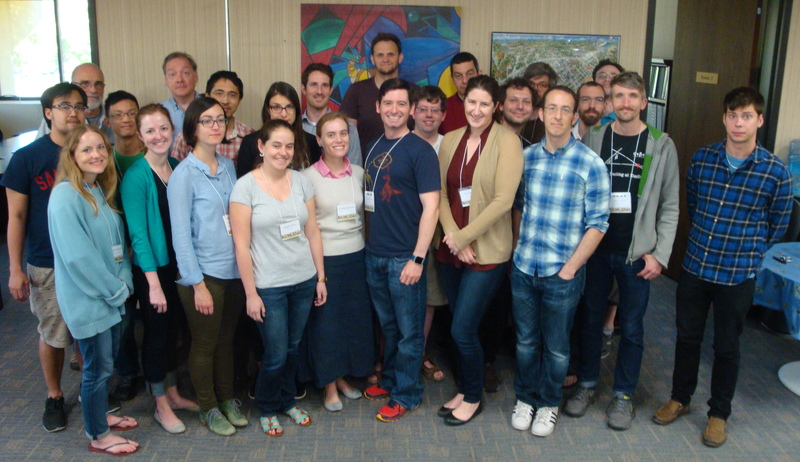Equivariant derived algebraic geometry
June 13 to June 17, 2016
at the
American Institute of Mathematics,
San Jose, California
organized by
Andrew Blumberg,
Teena Gerhardt,
Michael Hill,
and Kyle Ormsby
Original Announcement
This workshop will explore computations and examples that will help
guide the development of the fledgling field of ''equivariant derived
algebraic geometry''. Although ideas that fit under this rubric have
been around for a long time, recent work on the foundations of
equivariant stable homotopy theory (starting with the
Hill-Hopkins-Ravenel work on the Kervaire invariant one problem) and
Lurie's development of the foundations of ''derived algebraic
geometry'' now allows systematic exploration and
organization. Motivating examples come from the work of Hopkins and
his collaborators on algebraic geometry in algebraic topology. Since
motivic homotopy theory has also grappled with understanding
commutative ring spectra in algebraic geometry, sharing of examples
and experience will be of great benefit.
A broad overarching goal is to explore when a moduli problem in
algebraic geometry which has a solution in commutative ring spectra
with a $G$-action has in fact a solution in genuine commutative ring
$G$-spectra which have tractable slices. We hope to identify a number
of such settings in which we will describe underlying computations,
explore foundational consequences, and flesh out possible strategies
for proof.
Concrete topics for the workshop include:
- Studying examples arising from duality and line bundles for
topological modular forms,
- Computations with topological modular forms with level
structure, such as the computation of the $RO(G)$-graded homotopy
groups of $Tmf(\Gamma)$,
- Determining the computational impact in the theory of topological
modular forms of the extra structure that arises on equivariant commutative
rings,
- Determining and computing the obstruction groups for passage
from naive $G$-equivariant commutative ring spectra to genuine
commutative ring spectra,
- Exploring the connections with computations in motivic homotopy theory.
Material from the workshop
A list of participants.
The workshop schedule.
A report on the workshop activities.
A list of open problems.
Papers arising from the workshop:

